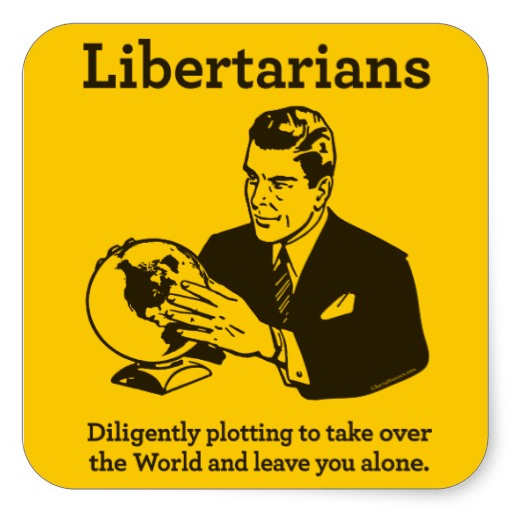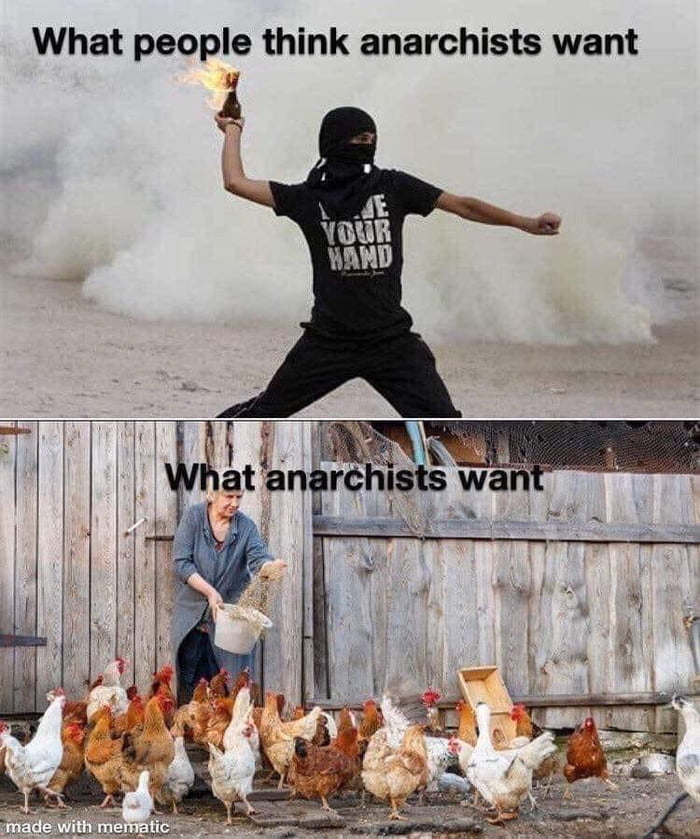We are both very interested in DevOps and good development culture, and more recently, freedom and Libertarian principles.
We found some interesting similarities between the two. Both focus on individual responsibility and accountability, both have been compared to “self-organizing anarchy” or “chaos that works.” Both favor empowered, informed distributed decision-making over centralized decision-making – essentially, both advocate for moving the authority to make decisions as close to the data, as close to the situation, as possible.
An Introduction to DevOps
There is no perfect definition of DevOps, and there are a lot of debates about what is and what is not DevOps. However, here’s a definition that covers the major elements and purposes:
“DevOps is the combination of cultural philosophies, practices, and tools that increases an organization’s ability to deliver applications and services at high velocity: evolving and improving products at a faster pace than organizations using traditional software development and infrastructure management processes.” – AWS
DevOps is a reaction to what came before it. [needs a connection to:] In Big Design Up Front software development, every requirement and element of software was designed, then it was all built, then it was all tested, then someone else had to run it, in a one-way process that was brittle, slow, and had massive lacks in communication – and led to a lot of software failure. There were a lot of fingers being pointed. Central planners created plans, others had to live with them, even if they made no sense. Everybody had good intentions (mostly?), but they weren’t a team, they didn’t communicate, and they all worked towards their own goals that were not always the same.
In a DevOps model, there is shared understanding and two-way communication in a community of people tasked with the fruition of a shared goal: building working software. They each have some amount of the responsibility to design, create, validate, secure, and run that software.
DevOps seeks to maximize the ability of the team to execute on their goals in the way they see fit.
DevOps incorporates manufacturing cultural and process revolutions that occurred in the 1980s: a focus on products being produced that deliver value, rather than making individual steps in the journey efficient. Instead of localized success, the focus was shared, whole-team success, with success being defined as delivering a valuable product.
The end result is the removal of huge pain points in the software delivery process, leading to a massive improvement in software delivery efficiency. Many companies that build software are attempting to convert their processes and teams to DevOps, with some big successes, and also many lessons learned along the way.
“Culture change is hard.”
– everyone who’s ever done it, or lived through it
There are a lot of tools, technology, and architecture that make all of this easier to do now as compared to 20 years ago when we started doing software development. However, Josh’s first software project way back in the day was made out of 4 people who were empowered to make their own implementation decisions, and they had shared responsibility from design to running the software – so software development was really fast and efficient. This model pre-dates the technology innovations that have helped DevOps explode, but it worked even then.
An Introduction to Libertarianism
There are many definitions of Libertarianism (the first of many similarities to DevOps…), but here’s one that’s pretty solid:
“As Libertarians, we seek a world of liberty: a world in which all individuals are sovereign over their own lives and are not forced to sacrifice their values for the benefit of others.
We believe that respect for individual rights is the essential precondition for a free and prosperous world, that force and fraud must be banished from human relationships, and that only through freedom can peace and prosperity be realized.
Consequently, we defend each person’s right to engage in any activity that is peaceful and honest, and welcome the diversity that freedom brings. The world we seek to build is one where individuals are free to follow their own dreams in their own ways, without interference from government or any authoritarian power.”
– Libertarian Party
Libertarianism has a lot of deep roots. The US Libertarian Party is pretty new as US political parties go, created only in 1971. It was created as people reacted to the government increasing its control over peoples lives, and the desire to remove that control. Libertarians are opposed to legal restrictions on marriage, legal restrictions on who can associate, legal restrictions on drug usage, and legal restrictions on individual property.

A tongue-in-cheek-but-not-really summary of Libertarianism is, “my political philosophy can be summarized thusly: I want gay married couples to be able to protect their marijuana plants with machine guns they bought with Bitcoin.” This is another, funny variation:

The basic idea is that individuals are better at deciding about their lives than the government – that centralized control is not the optimal way to decide how people should behave, and, given this, the government causes more problems than it solves.
Examples of this include legalized slavery, legally requiring racist or discriminatory behavior, prohibitions on moral behavior such as drug use or usage of restricted medicines, wars of imperialism, police brutality, and putting businesses and their staff out of business with taxation. Generally, the government gets in peoples lives and makes a mess of things.
Said differently, Libertarians believe that governmental control backed by the threat of violence is fundamentally immoral. If you don’t pay your taxes or avoid smoking the wrong plant, the government will attempt to take you away from your family, life, and friends, and throw you in jail. If you resist going to jail, they can and may well shoot you. This is morally repugnant.
Libertarians believe that governmental control backed by the threat of violence is fundamentally immoral.
Libertarianism values individual consent over societal control.
Wouldn’t it be nice not to have to pay all of the taxes that fund foreign wars? To choose NOT to give the money that you earn for something that you don’t believe in? Think about what you could do with all that money. Wouldn’t it be nice not to fund corporate bailouts? That’s also a whole lot of money. And…that’s just the taxes you pay from your paycheck. Imagine if there were fewer restrictions (created by bureaucrats and lawyers) on every single product you buy – how many legal loopholes have to be navigated to set up those restrictions, and to maintain them. Guess who pays for all of that navigation? Spoiler alert, it’s you. Have you ever looked up what the price of a bottle of fine scotch as if there were no taxes? Talk about depressing…
There is no perfect Libertarian system in place, but Libertarians have been working for years to legalize drugs, improve property rights, reduce government control, and reduce policing policies that harm individuals.
Similarities
Both philosophies believe that there is no perfect environment, and there is no control structure perfect and wise and knowledgable enough to control things from afar. For a removed human control structure to be work, people in control have to consistently and constantly behave selflessly and efficiently on behalf of everyone they represent, which…isn’t a thing humans are capable of. The expectation of that sets even the best people up for failure. There is no perfect world, but both systems believe that the right answer comes from individuals with the ability to choose for themselves, and communities who voluntarily agree to move towards a shared purpose.
Both systems believe that control should be pushed down to the individual.
Both systems arose from a struggle with the people in control, who want to tell people what to do and how to do it in ways that don’t make a lot of sense. Both systems struggle with the fight to separate from those control structures, and to give people the freedom to make choices.
Both systems struggle with getting people to trust that their model works, because it requires trust, and it also seems impossible.
However, the old systems don’t work, and both movements are growing as more people see that and yearn for something different.
Both systems have realized that while rules and laws don’t actually control behavior, clarity and freedom does help them make good decisions.
DevOps is the acknowledgement that centralized planning and control removes the agility and freedom to make good decisions as situations change, and that centralized control slows things down and gets in the way.
Libertarianism is the acknowledgement that centralized (government) control removes the flexibility and freedom of the individual to live their life and find their own joy and happiness, and that centralized government is a cure worse than the disease.
Differences
There are some critical differences between these two cultural phenomena. Government typically is more overbearing and uses fear much more than practitioners of Big Design Up Front software design. The government will tell you that you need them to be safe, that you need to be controlled because you can’t possibly control yourself – much like an awful, abusive, codependent ex. Government will tell you that they need to drop bombs on people in foreign countries, because violence to others…somehow, keeps you safe. Government will tell you that only they can keep you safe, and if you take measures to defend yourself, you’ll only hurt yourself – but if the government threatens or does violence to you, it’s for your own protection.
…JKLOL, it’s just more similarity.
Culture change is hard.
With DevOps, you affect how people do their jobs. You give responsibility to some people, and take it from others, moving it in general towards the people who are most affected, who are most directly involved in the subject at hand. Some people don’t like having less responsibility, not realizing that the end goal of any leader (and we all should be leaders) is to make yourself redundant, and then take up more valuable pursuits.
With Libertarianism, you affect how people live their lives. You give responsibility to people for how they live their individual lives, by giving them freedom to live as they see fit. You take responsibility away from centralized planners and government agents, who…again, generally, really don’t like having their power taken away.
So, basically, Libertarianism is DevOps writ large, with similar benefits and efficiencies, and similar challenges to overcome. Only…with higher stakes.
A Culture Change Example: Security
DevOps
One of the major concerns about DevOps involves security. If everyone is doing DevOps and design, development, testing, and running is flowing fast and efficiently, then the next bottleneck is often IT Security teams. No one told them the software would be built and delivered 100x faster, and that technology would move at about that rate as well, and that all of their security tests and processes would have to keep up.
However, some teams figured out that if they apply DevOps principles and processes to security, then delivered software can be even more secure, even while moving 100x faster. This revolution, adding security into the DevOps processes or maybe DevOps’ing security, is called “DevSecOps.” It involves even more culture change and even more trust, because security is not something to mess around with. But, for those that could navigate the cultural, process, and tool changes to get there, software was delivered faster, with less effort, and changes were released faster, while finding and fixing security problems equivalently fast. Turns out, doing things this way made security easier and more effective too.
Libertarianism
One of the major concerns about Libertarianism is, “if my abusive ex the government doesn’t protect me, who will?” This matters way more than IT security, because if someone steals your credit card number from a website, you can sort that out – but if you expect the police to come when someone’s robbing you, and they don’t, you could experience serious harm to property and self/family.
An unfortunate reality is that in most situations, the police merely arrive to take a report and perhaps do some investigating after the fact. They have no obligation or duty to protect you.
On the other hand, the criminals that people typically worry about the government keeping them safe from aren’t even in the same ballpark as the governments who kill their own people. For some ballpark numbers, approximately 20,000 people are murdered by individual criminals in the US per year, roughly. Author R.J. Rummel asserted in a 1997 book that government murdered 169,202,000 people in the 20th century – or an average of 169,202 people per year. Lest you say, “yeah but some of those people died as a result of war, ” that number excludes wars. That’s just governments murdering their own people. From R.J. Rummel’s book, “this democide murdered 6 times more people than died in combat in all the foreign and internal wars of the century. Finally, given popular estimates of the dead in a major nuclear war, this total democide is as though such a war did occur, but with its dead spread over a century.”
We would also like to point out that most of this governmental murder occurred in states where the government had a massive monopoly on violence: heavily armed police vs. disarmed citizens. Somethin’ to think about as the current US government massively up-arms its police and passes laws to disarm its citizens.
Also check out The Monopoly on Violence, a fantastic documentary on this subject and also Libertarianism as a whole.
A wonderful thing about personal responsibility is if you have the freedom to defend yourself, you are always on the scene when you need defending. The cops may be ten minutes away, but you are always right there.
Security really matters. It can be kind of scary. But pretending that false security is real security, and choosing to abdicate all of your responsibility for your own security, is not the right answer – and it can be shattered when reality arrives.
Toward a more perfect culture
There is no perfect culture. There is only the path by which we pursue perfection, built on personal choice and continually striving to learn and implement better.
There is no perfect DevOps implementation, only people attempting to work together in a clearer, more transparent, agile way, with responsibility for success and decision making pushed to the same shoulders. Or…said another way…there is only the path by which we pursue perfection, built on personal choice and continually striving to learn and implement better. TADA!
There has not been a perfectly Libertarian society, once we realized that tribes could conquer each other. However, the cultural change that made DevOps successful can be applied to the larger culture: reduce centralized planning and control (and the expense thereof), eliminate centralized controls and monopolies on things societies need, and push freedom and responsibility onto the people who can accept it. Reducing laws that restrict important freedoms, such as decriminalizing drug use, and removing restrictions on marriages between consenting adults are examples of baby steps.
Conclusion
Both systems are “self-organized anarchy” and “chaos that works.” Both systems emphasize that the “best decisions are made on the ground,” and therefore we should “move the decision closest to the data.” Both systems emphasize freedom, and individual and community responsibility. We know freedom leads to massive innovation and adaptability and success, and we know centralized control leads to brittle, slow-changing, miserable culture.
There are no perfect systems of software development, or government. We know what doesn’t work (centralized control that requires perfect wisdom and selflessness), and we have some ideas about what does work. We know that the ability of people to choose their own adventure is hugely important, and that it seems to align with the things we’ve learned while trying to understand how to be a person, and a Christian. Seeing patterns like this, especially seeing the model seem to work on a smaller but still important scale, gives us hope that maybe it can work on a larger scale too.
We will continue to consider how these cultural movements compare, and attempt to apply lessons from one system to the other. We’ll keep you posted.








 So…remember science?
So…remember science?
 There’s something wrong with the world today,
There’s something wrong with the world today,